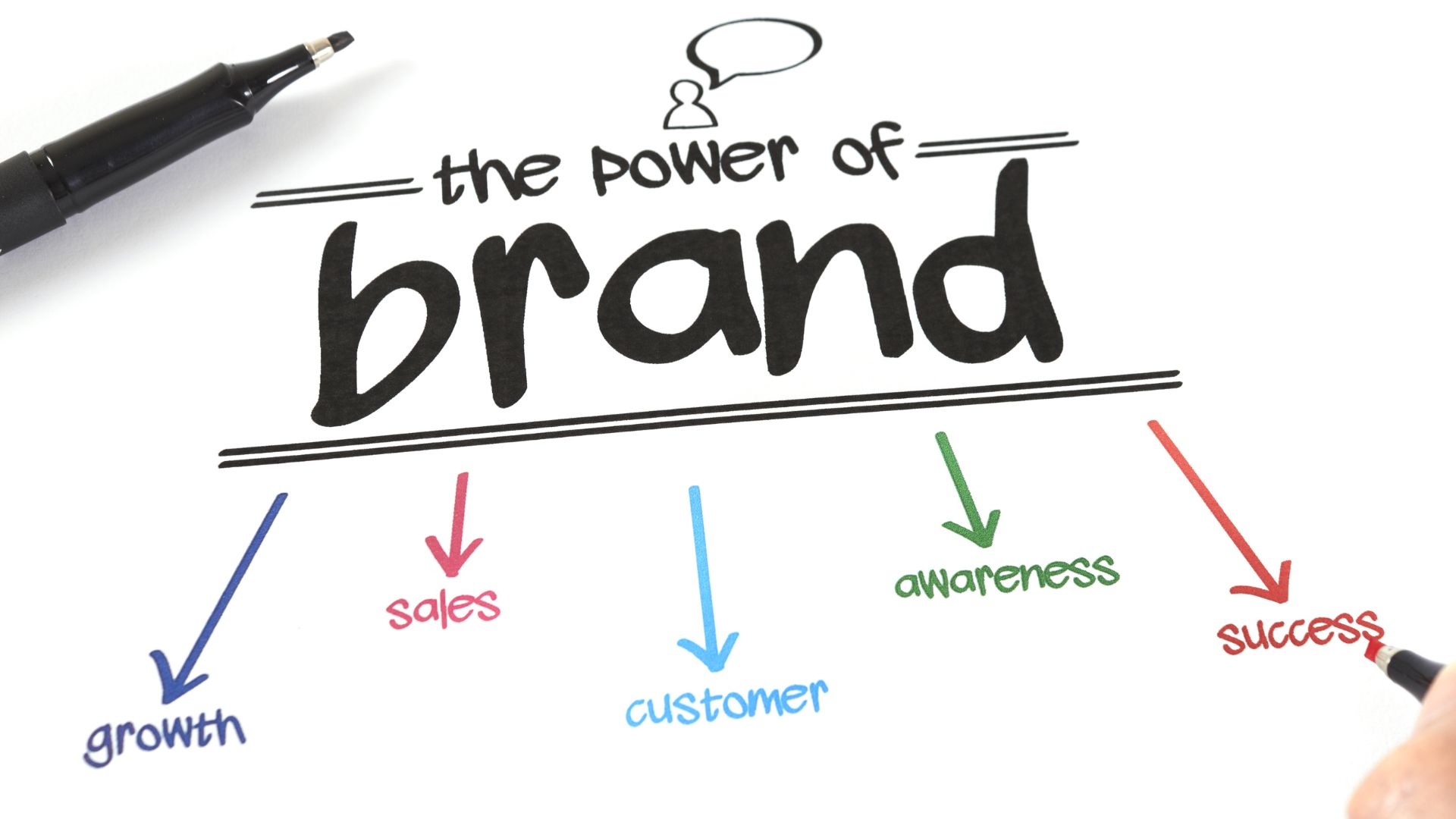
Branding represents the soul of a business. It is far more than just a logo or a name; it is the holistic perception a consumer has about a company and its offerings. This article will examine the fundamentals of branding, including the value of branding, the components of a great brand, and the methods for developing a powerful brand.
What is Branding?

Branding, at its core, is a promise that a company makes to its consumers. It is not just about the physical aspects of a business, such as its name or logo. Instead, it communicates the business’s essence, its unique values, and the unique benefits it provides. It offers a mental framework for people to understand, remember, and connect with the business.
The Scope of Branding
Fundamentally, your brand is the totality of perceptions, emotions, and experiences that your customers have with your business, product, or service. It’s the story that consumers recall when they think of you. This story combines all the tangible and intangible aspects of your business – the name, the logo, the visuals, the tone of voice, the customer experience, and even the feelings and thoughts it elicits.
The Importance of Branding
No matter the size or nature of the company, branding is essential. It allows a business to distinguish itself from its competitors and to establish a unique identity in the minds of consumers. A well-crafted brand strategy can give a business a significant edge in today’s competitive markets.
The Core Elements of a Brand
A brand is made up of various elements. These elements work together to create a comprehensive and consistent experience that helps consumers identify a product or a business and gives them reasons to choose it over its competitors.
Brand Name and Logo
The brand name and logo serve as the primary identifiers of a business. They are the first things that people see, and they play a significant role in creating the first impression.
Brand Value Proposition
The value proposition is a promise to clients about the benefits they will receive from purchasing and using your goods and services. It differentiates your offering from your competitors’ and articulates why customers should choose you over them.
Brand Personality
When discussing a product’s “personality,” we talk about its “brand personality.” It could be innovative, experienced, reliable, high-quality, or high-value. The brand’s character should reflect the wants and demands of its intended audience.
Brand Messaging
The brand’s message is the value proposition and tone of voice that it uses to communicate with its target audience. It’s what makes customers feel a connection to your company and its products, which in turn increases sales.
Brand Visuals
Brand visuals include the logo, color scheme, typography, and imagery associated with the brand. All of your marketing products should share these qualities for a united brand presence.
Brand Strategy

A brand’s strategy is its plan for how and when its messages will be disseminated and to whom. The strategy encompasses everything from where you advertise and distribute your products to what visual and verbal elements you use to communicate your brand messages.
Role of Brand Strategy
A brand strategy helps to guide the marketing efforts of a business. It provides a clear understanding of the business’s unique selling propositions, target audience, and market position. It outlines how the brand will be portrayed in the market and what messages will be communicated to the consumers.
Developing a Brand Strategy
It can be difficult to figure out how to best position your brand. It calls for an in-depth familiarity with the company’s goals, the characteristics and benefits of its products or services, the views and expectations of its target audience, and the values it hopes to be associated with.
Brand Equity
Brand equity is the value that a company’s name or logo brings to a consumer’s perception of a good or service. This worth originates in the confidence and warmth with which people view the brand. When compared to similar, unbranded products, a company can command a higher price for its goods and services if its brand equity is high.
Creating Brand Equity
Creating brand equity requires consistent and strategic branding efforts. The aim is to create positive sentiments among the target audience, resulting in brand recognition and loyalty. If done right, brand equity can lead to an increase in sales and customer retention.
Benefits of Brand Equity
Brand equity benefits a business in several ways. It allows the business to charge a higher price for its products, resulting in increased profitability. It also helps in attracting and retaining customers, which leads to sustained business growth.
Defining Your Brand
Defining your brand is a crucial step in the branding process. It involves understanding who you are as a business, who you want to be, and how people perceive you. This understanding forms the basis of your brand and influences all branding decisions.
Brand Mission
Your brand mission outlines why your business exists and what it hopes to achieve. It guides your business decisions and communicates your purpose to your customers.
Customer Perception
Understanding how your customers perceive your business is critical to defining your brand. You need to understand their needs, wants, and expectations to build a brand that resonates with them.
Desired Brand Image
The desired brand image is how you want your business to be perceived by your customers. It should align with your business goals and your customer’s expectations.
Building a Brand
Building a brand involves creating a distinct identity for your business, developing a consistent brand message, ensuring brand continuity, and delivering on your brand promise.
Creating a Distinct Identity
The first step in building a brand is to create a distinct identity for your business. This includes choosing a unique brand name and creating a compelling logo that reflects your brand values.
Developing a Consistent Brand Message
Developing a consistent brand message is crucial for building a strong brand. Every piece of communication, whether it’s a social media post or a customer service interaction, should reinforce your brand message.
Ensuring Brand Continuity
Brand continuity is about maintaining a consistent brand experience across all customer touchpoints. It involves ensuring that your brand’s voice, visuals, and messaging are consistent across all channels.
Delivering on Your Brand Promise
Delivering on your brand promise is crucial for building trust and loyalty among your customers. Whether it’s providing high-quality products, exceptional customer service, or a unique shopping experience, you need to ensure that you consistently deliver on your promise.
Branding Essentials for Entrepreneurs

As an entrepreneur, there are several branding fundamentals you should keep in mind as you embark on your brand-building journey. These include authenticity, honesty, core values, strong messaging, customer-first approach, and a quality product.
Authenticity
Authenticity is about being genuine and real. It’s about staying true to who you are, what you do, and who you serve. Authentic branding builds trust and loyalty among your customers.
Honesty
Honesty is vital for building a successful brand. It involves being transparent about your business practices, acknowledging your mistakes, and always striving to do what’s right for your customers.
Core Values
Your core values are the guiding principles that shape your business’s actions and decisions. They form the foundation of your brand and communicate what you stand for.
Strong Messaging
Strong messaging is key to effective branding. It involves communicating your brand value in a clear, compelling, and consistent manner.
Customer-First Approach
A customer-first approach is crucial for successful branding. It involves putting your customers at the center of your business decisions and striving to meet their needs and exceed their expectations.
Quality Product
Last but not least, a quality product is a cornerstone of successful branding. No matter how strong your branding efforts are, they won’t matter if your product doesn’t live up to your customers’ expectations.
Wrapping Up

Investing time and energy into building a brand takes strategic forethought, perseverance, and familiarity with one’s intended demographic. It entails developing a distinguishable persona, spreading your message consistently, and living up to your brand’s promises. Successful branding may increase visibility, cement brand recognition, and motivate customers to become repeat buyers.
Branding fundamentals are important for companies of all sizes and in all sectors. It’s a complex procedure including several factors, such as the brand’s name and logo, its value proposition, and its personality. It calls for careful preparation and an in-depth familiarity with your intended audience. If you can get these fundamentals down, you’ll have a far better chance of building a brand that people will remember and that will help you stand out from the crowd.
Keep in mind that your brand consists of more than just a name and logo. It’s the combination of what you say you’ll give your customers and what they actually get. So, carefully establish your brand’s identity, construct it, and tend to it on a regular basis. After all, your company’s brand is what makes it tick.
FAQ’s
What is the importance of branding?
Branding is essential for any business as it helps to distinguish it from its competitors, creates a unique identity, and establishes a memorable impression in the minds of consumers. It also builds customer loyalty and increases business value.
What are the key elements of a brand?
The key elements of a brand include the brand name, logo, value proposition, personality, messaging, and visuals.
What is brand equity?
Brand equity refers to the added value that a brand imparts to a product or service. This value is derived from the perceived quality or emotional attachment that consumers have towards the brand.
How do you build a brand?
Building a brand involves creating a distinct identity, developing a consistent brand message, ensuring brand continuity, and delivering on your brand promise.
What are the branding essentials for entrepreneurs?
The branding essentials for entrepreneurs include authenticity, honesty, core values, strong messaging, customer-first approach, and a quality product.
